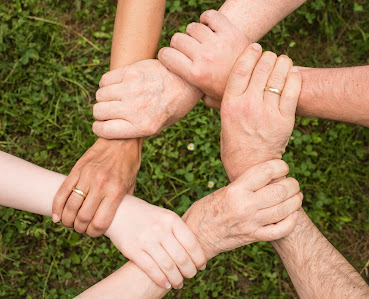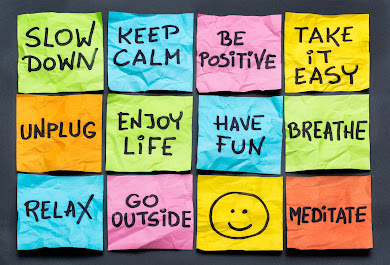Weight control🌵and Lifestyle Medicine🌿Part 4 - alcohol 🍷harm reduction
Today we are going to explore some reasons that alcohol can affect weight control and look at the Lifestyle medicine aspects of that influence. Alcohol that we consume is the form of Ethanol. The media surrounds us with stories of alcohol being a healthy beverage when consumed as wine🍷, mainly due to the presence of resveratrol. We are not told what huge quantities we would have to consume in order to get those benefits from the resveratrol. As there are no minimum safe levels of alcohol to drink, it is much better to separate your mind from thinking that wine is a healthy alternative to other alcohol-based drinks.
Consumption of alcohol can present quantity issues, as alcohol is significantly involved in our social behavior. If cultural connection between alcohol and entertaining is strong, there may be pressure for an individual to “go on, have another one” type invitation. This may lead to the alcohol consumed to be far more than you expected. This may additionally lead us to eat more high-density foods rich in saturated fat 🍟, salt and sugar 🍦. It may include take away, processed or ultra highly processed foods 🌭 🍔.
We often consider alcohol as an aid to sleep and may have a “night cap😴” to prepare for sweet dreams. Sorry for the disappointment, but alcohol is a sedative. Your sleep becomes a disrupted attempt to move through the early deep sleep times, most experienced in the first half of your sleep cycle. This deceptive imposter is affected later by the diminished blood alcohol level and followed by a cortisol spike, normally kept for you towards the end of your sleep to bring you back to the awake stage. Moderate drinking may only have a 10% impact, heavy drinking can be possibly four times this level. The important point here is that higher levels of alcohol consumption create disorders in our sleep pattern, often in the form of a behavioral induced insufficient sleep syndrome.
One of the impacts of this condition may relate to less than 7 hours of good quality sleep. If you sleep poorly for more than 3-4 days in a row you can cause the Leptin/ghrelin levels in the body to be disturbed. Put simply, when they become dis-regulated, your hunger won’t be suppressed, it will be increased. Hence research shows that this can lead to you reaching for up to 300 extra calories per day of saturated fat food. Can you see the effect this can have on weight control? As drinking before sleep can induce insomnia in some people, this Leptin/Ghrelin disruption may persist, and further increase the risk of being overweight or obese.
One very important consideration of alcohol intake surrounds its absence of nutrition. Alcohol is just pure calories, with no nutritional value at all. Yet in some countries it is not uncommon for this substance to be 10% of total calories consumed in one’s diet. Alcohol is a neurotoxin. It has been clearly established by research that no amount of alcohol consumption is healthy, minimum recommendations for men and women are made as guidelines to less dangerous use. This is important to keep in mind when planning to consume alcohol, especially where weight is concerned.
There have been associations made between alcohol use, Bulimia nervosa, and anorexia nervosa. It doesn’t mean alcohol use will lead to eating disorders, but the reality that it can affect our food choices, attitudes, or tendencies to make impulsive decisions that relate to alcohol use, leading to behaviors that may cause us to reflect negatively on decisions we made while drinking. The addictive nature of alcohol can make it hard to control intake. This may make eating patterns hard to change and involve less nutritious food choices for ease of eating, or because of effects on mood that can make us reach for high fat foods, take away food, processed and ultra processed foods. Many people will end up overeating under these circumstances. Research has demonstrated that weight gain can progress to overweight or obese states, in the presence of habitual and higher alcohol intake levels.
No subject regarding alcohol should leave out addressing sedentary behavior. Much of the time spent drinking alcohol with friends involves sitting, whether socially or in a party setting. Therefore, little energy is expended during that time. There might be another period of time following alcohol consumption where we just sit back, relax and chill out. Therefore, it is not uncommon for the total energy expenditure to be very low during alcohol consumption. As it also happens to be very acceptable, it is often followed by inactivity.
This might be one of the reasons why alcohol and sedentary 🧸 behavior are often quite closely associated with each other in many research projects. But there are other reasons. You may have planned exercise and postponed it due to having a few drinks. Or consuming alcohol may have made you feel tired and sleepy, with further delays made. And this does not even include postponing exercise due to our mood being affected by alcohol and making us less inspired to activity. What do you notice regarding activity? Can you site some other examples that you could add here, that relate to less activity and alcohol consumption? And so, the list would extend to other examples you may offer.
Let’s look at some ways in which we may be able to incorporate more activity into our day and lower the dangers of sedentary behavior related to alcohol.
•
Abstain
from alcohol for a week and see what effect it has on your activity level.
•
Plan some alcohol-free
days, do activity 🏋🏼 on these days instead, including scheduled exercise.
•
Try and
carry out any planned activities or exercise prior to having alcohol.
•
Join a
sports team or arrange activities ⛹🏼 with friends, to give you some more motivation to exercise more
often.
•
Try not to
consume alcohol 3 hours before you sleep.
• Be aware that sedation is not sleep and remember self-compassion involves adequate sleep.
I have mentioned this once before but want to remind you how quickly time passes. What may simply be missing a day or two of activity may in fact be part of an ongoing reduction in your activity level. It is hugely surprising that only a small number of calories extra each day in the presence of little or no activity, can add anything up to 1 kg of weight extra per year. If that becomes a pattern, 10 kg in 10 years would be highly predictable.
Hence, let’s all move together in changing patterns that don’t contribute to our long-term goals. I know we have a passion for believing in instinctive knowledge that we can be the best versions of ourselves. And I want you to believe that this is possible.
Change can take place gradually. If you picture in your mind a rough diamond. Now look at that diamond and imagine polishing one tiny surface each day. What would that diamond look like in 365 days? It will be a beautiful possession! If you designed each and every change to that diamond on a daily basis, I think you would end up with a masterpiece! In this context, you are the masterpiece.
So, let’s challenge ourselves, and accept the opportunity of giving ourselves what we regard as the best chance. Don’t make too many plans at once. Just give yourself the time to see your small changes become your new reality.
We can cease making excuses for holding back on behavioral
change. It’s our life, we don’t need others’ approval. When we do this, it will
offer new perspectives for changes in our weight control. We will discuss more about
this in future. If you believe that you may have some dependence on alcohol, I
recommend discussing it with your family doctor. Not much more than 10% of
people with alcohol dependence seek treatment or counselling. But remember that
the more pillars of lifestyle medicine you observe, the more effective your
weight control efforts become. Small steps 🚶🏼♀️are the best.
Don’t be discouraged and take one day at a time.
Can you think of some things that you may like
to add to this discussion? Would you like to share them? Please feel free to leave your comments, or any other ideas that
you may have to suggest. Let the other pillars of Lifestyle medicine shine even
brighter, once the true nature of alcohol is put into better perspective. Have
a wonderful week and I look forward to joining you again for our session on Weight
control and Lifestyle Medicines Part 5- Sleep💤. See you then!



Comments
Post a Comment